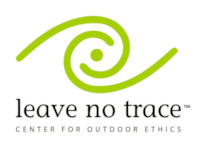"Dispersed camping" is the term used for primitive camping outside a designated campground. It is a great way to get closer to nature than you feel in an established campground.
Dispersed camping is also sometimes called "backpack camping" or "wild camping" (not to be confused with stealth camping, though it shares many of the same characteristics).
Kansas is a relatively large state, but its lack of large forested or undeveloped areas, and paucity of public land, means that there are rather few options for dispersed camping in the Sunflower State.
However, while most Kansas State Parks, Fishing Lakes, and Wildlife Areas only permit camping in designated areas, there are a precious few destinations that do explicitly permit dispersed camping:
-
Barber State Fishing Lake – Located near Medicine Lodge, free primitive camping is allowed anywhere within the area.
-
Big Hill Wildlife Area – Located near Parsons, "primitive backpack camping" is allowed anywhere on the property.
-
Butler State Fishing Lake – Located near Latham, free primitive camping is permitted anywhere within the property.
-
Cimarron National Grasslands – Located in extreme southwestern Kansas, the Cimarron National Grasslands allow dispersed primitive camping anywhere along the Santa Fe Companion Trail and the Turkey Trail.
-
Clark State Fishing Lake – Located near Kingsdown, free primitive camping is allowed throughout the area.
-
Copan Wildlife Area – Located on the KS/OK border near Caney, primitive camping is permitted anywhere within the Wildlife Area.
-
Elk City State Park – Located near Independence, primitive camping is permitted anywhere along the Table Mound Hiking Trail.
-
Hain State Fishing Lake – Located near Spearville, free primitive camping is allowed anywhere on the area.
-
Hamilton State Fishing Lake – Located near Syracuse, free primitive camping is permitted anywhere within the property.
-
Hodgeman State Fishing Lake – Located near Jetmore, free primitive camping is permitted anywhere within the property.
-
Hollister Wildlife Area – Located near Fort Scott, primitive "backpack camping" is permitted anywhere within the entire area.
-
Mined Land Wildlife Area – Located near Pittsburg, this is a collection of 46 small tracts. "Tent camping is allowed at any location except refuge areas."
-
Nebo State Fishing Lake – Located near Holton, free primitive camping is permitted anywhere around the lake.
-
Tuttle Creek: Carnahan Creek Park – Located along the eastern shores of Tuttle Creek Reservoir north of Manhattan, free dispersed tent camping is allowed within the park.
-
Winfield City Lake – Located near Winfield, "tents may be pitched anywhere for camping".
Leave No Trace

Although dispersed camping provides a great degree of freedom, that freedom does come with responsibilities. The Leave No Trace Seven Principles apply:
- Plan Ahead and Prepare
- Know the regulations and special concerns for the area you'll visit.
- Prepare for extreme weather, hazards, and emergencies.
- Schedule your trip to avoid times of high use.
- Visit in small groups when possible. Consider splitting larger groups into smaller groups.
- Repackage food to minimize waste.
- Use a map and compass to eliminate the use of marking paint, rock cairns or flagging.
- Travel and Camp on Durable Surfaces
- Durable surfaces include established trails and campsites, rock, gravel, dry grasses or snow.
- Protect riparian areas by camping at least 200 feet from lakes and streams.
- Good campsites are found, not made. Altering a site is not necessary.
- In popular areas:
- Concentrate use on existing trails and campsites.
- Walk single file in the middle of the trail, even when wet or muddy.
- Keep campsites small. Focus activity in areas where vegetation is absent.
- In pristine areas:
- Disperse use to prevent the creation of campsites and trails.
- Avoid places where impacts are just beginning.
- Dispose of Waste Properly
- Pack it in, pack it out. Inspect your campsite and rest areas for trash or spilled foods. Pack out all trash, leftover food, and litter.
- Deposit solid human waste in catholes dug 6 to 8 inches deep at least 200 feet from water, camp, and trails. Cover and disguise the cathole when finished.
- Pack out toilet paper and hygiene products.
- To wash yourself or your dishes, carry water 200 feet away from streams or lakes and use small amounts of biodegradable soap. Scatter strained dishwater.
- Leave What You Find
- Preserve the past: examine, but do not touch, cultural or historic structures and artifacts.
- Leave rocks, plants and other natural objects as you find them.
- Avoid introducing or transporting non-native species.
- Do not build structures, furniture, or dig trenches.
- Minimize Campfire Impacts
- Campfires can cause lasting impacts to the backcountry. Use a lightweight stove for cooking and enjoy a candle lantern for light.
- Where fires are permitted, use established fire rings, fire pans, or mound fires.
- Keep fires small. Only use sticks from the ground that can be broken by hand.
- Burn all wood and coals to ash, put out campfires completely, then scatter cool ashes.
- Respect Wildlife
- Observe wildlife from a distance. Do not follow or approach them.
- Never feed animals. Feeding wildlife damages their health, alters natural behaviors, and exposes them to predators and other dangers.
- Protect wildlife and your food by storing rations and trash securely.
- Control pets at all times, or leave them at home.
- Avoid wildlife during sensitive times: mating, nesting, raising young, or winter.
- Be Considerate of Other Visitors
- Respect other visitors and protect the quality of their experience.
- Be courteous. Yield to other users on the trail.
- Step to the downhill side of the trail when encountering pack stock.
- Take breaks and camp away from trails and other visitors.
- Let nature's sounds prevail. Avoid loud voices and noises.
Note: The member-driven Leave No Trace Center for Outdoor Ethics teaches people how to enjoy the outdoors responsibly. This copyrighted information has been reprinted with permission from the Leave No Trace Center for Outdoor Ethics: www.LNT.org .
Dispersed Camping Best Practices
- Carry plenty of water. Do not drink water from a stream, river, or lake unless it has been purified.
- Let someone know approximately where you plan to camp. If you suffer a medical emergency, you cannot count on cell phone coverage, and it may be a very long time before someone finds you, particularly if they don't know where to look.
- Do not ride bicycles on trails where they are not allowed.
- If you wish to keep your campsite secure, avoid loud noises, lights at night, and campfire smoke, and cover any reflectors on your bicycle and gear.
- Do not practice dispersed camping during hunting seasons – sportsmen do not expect to stumble upon a campsite while hunting, and you do not want to be mistaken for prey.


